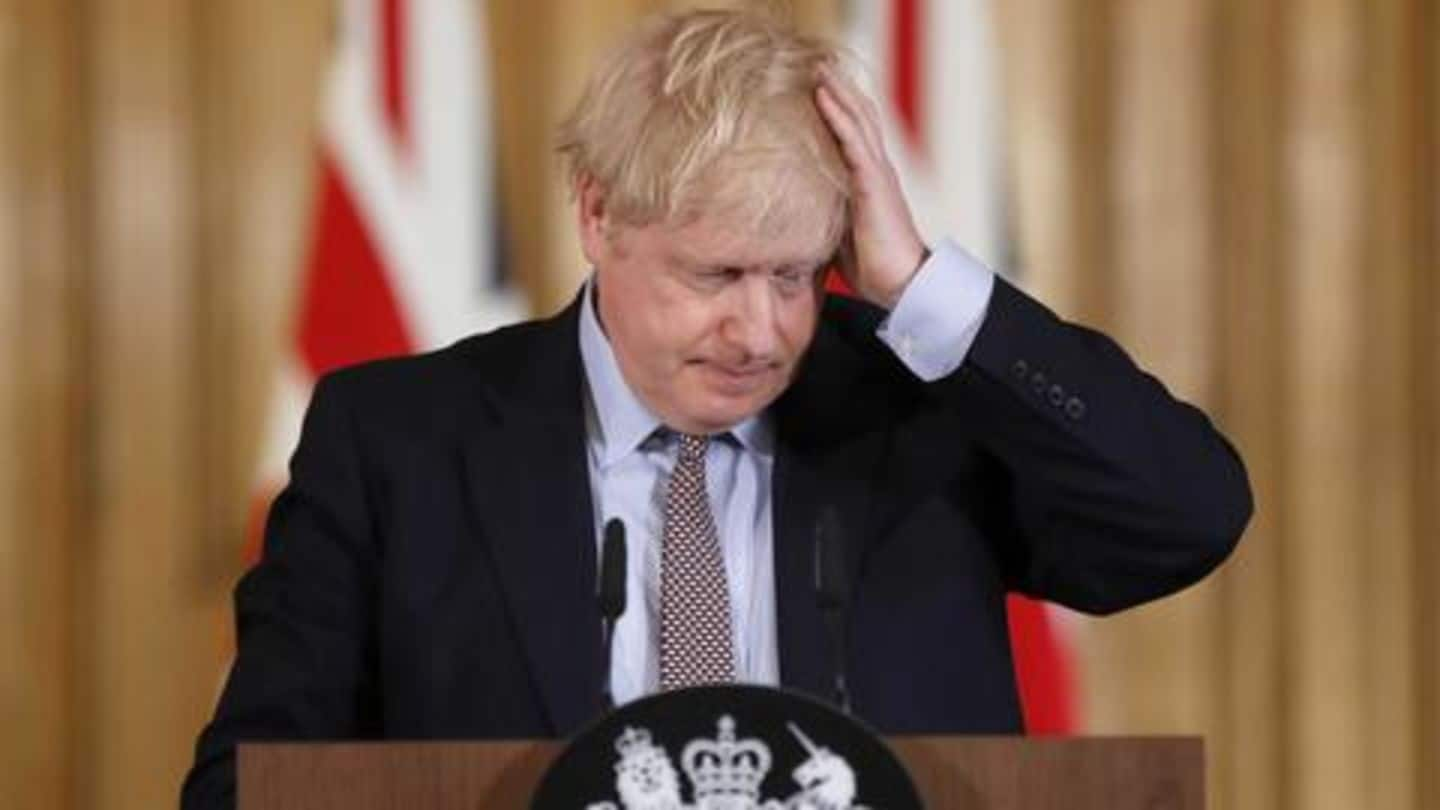
Coronavirus: Study predicts 22L deaths in US, 5L in UK
What's the story
A week ago, United Kingdom Prime Minister Boris Johnson's message to countrymen regarding coronavirus was to wash hands and he suggested isolation for seven days to those who developed symptoms. But on Monday, Johnson announced sweeping measures, signaling a change of approach. So did Johnson have a change of heart? Apparently yes, and it was only because of study that didn't bring good news.
Context
UK didn't learn from Italy and Spain's plight
UK's response to the virus, which originated in China last December, had been lukewarm, hinting that Johnson didn't learn anything from Italy and Spain, two of the worst affected European nations. So far, 71 people have died in Britain. This week, Johnson took a more aggressive approach, asking countrymen to avoid pubs, large gatherings, and told those over 70, having underlying conditions, to self-quarantine.
Study
Damning study used data from Italy and past outbreak
Johnson's change of strategy was reportedly influenced by a modeling study. A team led by Neil Ferguson, a professor of Mathematical Biology at Imperial College London, concluded that the pandemic could take 2.5 lakh lives in the whole of Britain, and 22 lakh in the States. The team used data from Italy and took into account the damage caused by the 1918's flu outbreak.
Findings
Intense care units would overflow with patients, predicted study
The study predicted that hospitals would overflow with patients and lakhs will die, even if the best-case mitigation approach is applied. "In the UK this conclusion has only been reached in the last few days, with the refinement of estimates of likely ICU [Intensive Care Unit] demand due to COVID-19 based on experience in Italy and the UK," the study read.
Suppression
It's time to take an aggressive approach
This leaves the UK with only one option — suppression. It means complete social distancing and the possibility of school and college closures. "A minimum policy for effective suppression is, therefore, population-wide social distancing combined with home isolation of cases and school and university closures," the study went on. The policies will have to remain in place until enough vaccines are available.
Quote
Lifting curbs doesn't mean people will become immune
Further, the study added, "The major challenge of suppression is that this type of intensive intervention package will need to be maintained until vaccine becomes available (potentially 18 months or more) -- given that we predict that transmission will quickly rebound if interventions are relaxed."
Impact
Fortunately, US and UK governments paid attention to the study
The study was referred to by the UK government, Sir Patrick Vallance, chief scientific adviser to the UK, confirmed. "What suppression in that paper talks about is exactly what we are doing," he said. Ferguson said the study was also shared with White House Coronavirus Task Force over the weekend, which perhaps prompted Donald Trump to change his approach too.
Details
Decision-making during pandemic is not easy, said experts
While the study was welcomed by other health experts, they pointed out that coronavirus has caught everyone off guard. Michael Herd, a senior research fellow at University of Southampton, said, "There are still huge uncertainties around any future estimates, reinforcing just how difficult decision-making is during a pandemic. It would still be useful to know the full set of evidence that is informing decision-making."